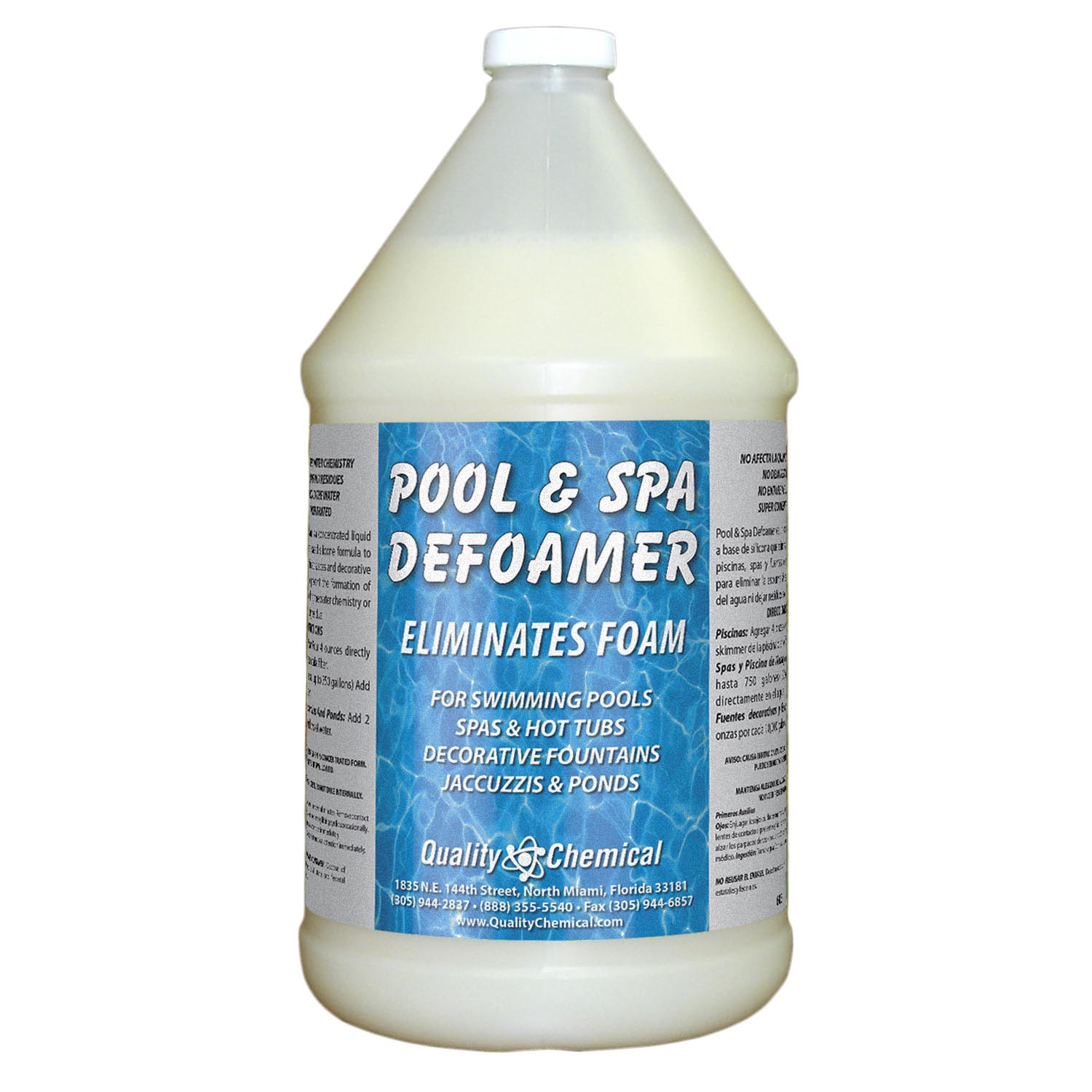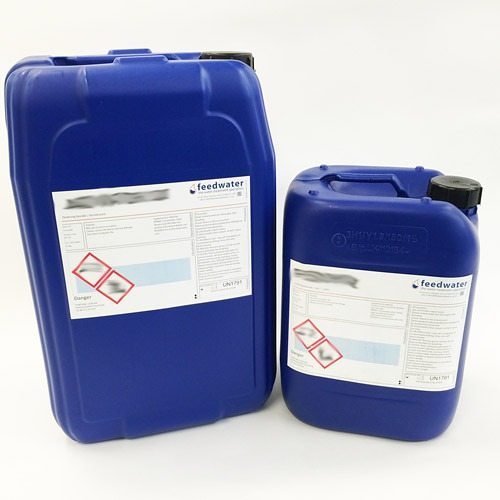The Environmental Impact of Chemical Defoamer and Sustainable Alternatives
The Environmental Impact of Chemical Defoamer and Sustainable Alternatives
Blog Article
Discover the Top Factors You Required a Chemical Defoamer for Effective Foam Control
In various industrial applications, efficient foam control is vital for keeping functional efficiency and product quality. Chemical defoamers work as necessary representatives that minimize foam formation, thereby improving processes in markets such as food production, pharmaceuticals, and wastewater treatment. Their capability to decrease surface stress not just promotes quicker foam collapse yet likewise causes considerable expense savings and enhanced resource administration. As we check out the complex benefits of chemical defoamers, it comes to be noticeable that their duty expands past plain foam decrease, influencing general efficiency in manner ins which may not be promptly evident.
Improved Operational Performance
Exactly how can the effective use of chemical defoamers considerably enhance functional effectiveness in various commercial processes? The presence of foam can prevent production by obstructing devices, decreasing capacity, and making complex process control. Chemical defoamers function as a crucial service in mitigating these challenges. By minimizing surface tension, they assist in the rapid collapse of foam, enabling smoother procedure and minimizing downtime (Chemical Defoamer).
In markets such as food and drink, drugs, and wastewater treatment, the application of defoamers improves process security and product quality. For example, in fermentation procedures, managing foam generation is essential for making best use of yield and performance. Furthermore, using defoamers can result in extra effective mixing and oygenation, causing improved reaction times and total productivity.
In addition, when foam is properly regulated, it lowers the threat of overflow and contamination, ensuring conformity with safety and top quality criteria. Inevitably, the assimilation of chemical defoamers into industrial processes cultivates a more effective process, enhancing outcome while preserving premium requirements.
Cost Savings and Source Monitoring

In addition, using defoamers improves the effectiveness of basic material use. In several applications, too much foam can cause overuse of chemicals, causing unnecessary expenditures. By regulating foam degrees, businesses can optimize their chemical input, thereby lowering operational prices. This not only adds to economic cost savings yet additionally advertises lasting techniques by lowering waste.
Furthermore, minimized foam in processing systems can improve the overall throughput, allowing centers to raise manufacturing capability without incurring extra costs - Chemical Defoamer. This reliable source administration equates into substantial financial benefits, enabling businesses to designate funds towards innovation or development. In recap, the integration of chemical defoamers into industrial procedures promotes a much more cost-efficient and resource-efficient atmosphere, eventually sustaining business growth and sustainability
Improved Item High Quality

Making use of chemical defoamers plays an essential duty in improving product high quality across numerous industries. Too much foam can result in irregular product solutions, affecting the last qualities of items such as paints, layers, food, and drugs. By mitigating foam development, chemical defoamers facilitate smoother manufacturing this link procedures, making certain that formulas continue to be uniform and fulfill specified high quality standards.
In the food and drink market, for example, the existence of foam can influence the clarity and preference of products, inevitably influencing customer contentment. Chemical defoamers assist preserve the wanted texture and look, therefore enhancing the total high quality of the final product. In a similar way, in the production of finishings and paints, foam can result in defects such as pinholes and poor bond, weakening the product's efficiency.
Moreover, making use of defoamers can enhance the efficiency of procedures like fermentation and emulsification, which are vital for achieving wanted product features. By enhancing production and making sure consistent top quality, chemical defoamers not only boost the end item but likewise add this to a favorable brand name track record. Hence, spending in reliable foam control solutions is vital for any type of business aiming to deliver premium products regularly.
Devices Security and Longevity
Reducing foam production is important for safeguarding equipment and ensuring its long life in numerous commercial applications. Extreme foam can result in a variety of operational issues, consisting of tools damages, enhanced maintenance expenses, and unintended downtime. When foam gathers, it can create overflow, causing spills that jeopardize the integrity of equipment and bordering areas.
Moreover, check it out foam can block sensing units and pumps, which can hinder efficiency and efficiency. In serious cases, it can cause the malfunction of components, necessitating expensive repairs or substitutes. By utilizing a chemical defoamer, firms can efficiently mitigate foam development, thus guarding their devices from the harmful impacts of foam-related problems.
In enhancement to avoiding damages, reliable foam control can considerably improve the functional lifespan of machinery. Investing in a top quality chemical defoamer is an aggressive strategy for safeguarding tools and cultivating longevity in industrial settings.
Adaptability Throughout Industries
Chemical defoamers play a crucial role in different markets, properly addressing foam-related challenges throughout varied applications. Their versatility appears in industries such as food and beverage, pharmaceuticals, and wastewater therapy, where foam can hamper procedures and lower performance. In the food sector, defoamers make sure smooth manufacturing by preventing foam development throughout blending, fermentation, and bottling, therefore keeping item quality and consistency.

Moreover, in wastewater treatment centers, chemical defoamers are employed to manage foam throughout the oygenation procedure, advertising optimum microbial task and enhancing the total therapy effectiveness. Their capacity to work efficiently in high-shear and high-temperature environments additionally emphasizes their adaptability.
Final Thought
In final thought, the use of chemical defoamers is necessary for reliable foam control throughout various markets. The adaptability of defoamers enables for widespread application in food production, drugs, and wastewater treatment, inevitably contributing to lasting development and the upkeep of high functional requirements (Chemical Defoamer).
Chemical defoamers offer as important agents that reduce foam development, consequently boosting procedures in fields such as food manufacturing, drugs, and wastewater treatment. As we discover the complex advantages of chemical defoamers, it becomes evident that their role extends past simple foam reduction, influencing total performance in means that might not be instantly noticeable.
By reducing foam development, chemical defoamers assist in smoother manufacturing procedures, making sure that formulations continue to be uniform and meet specific high quality standards.
By using a chemical defoamer, companies can properly alleviate foam formation, hence protecting their tools from the damaging effects of foam-related concerns.
In final thought, the usage of chemical defoamers is imperative for efficient foam control across different industries.
Report this page